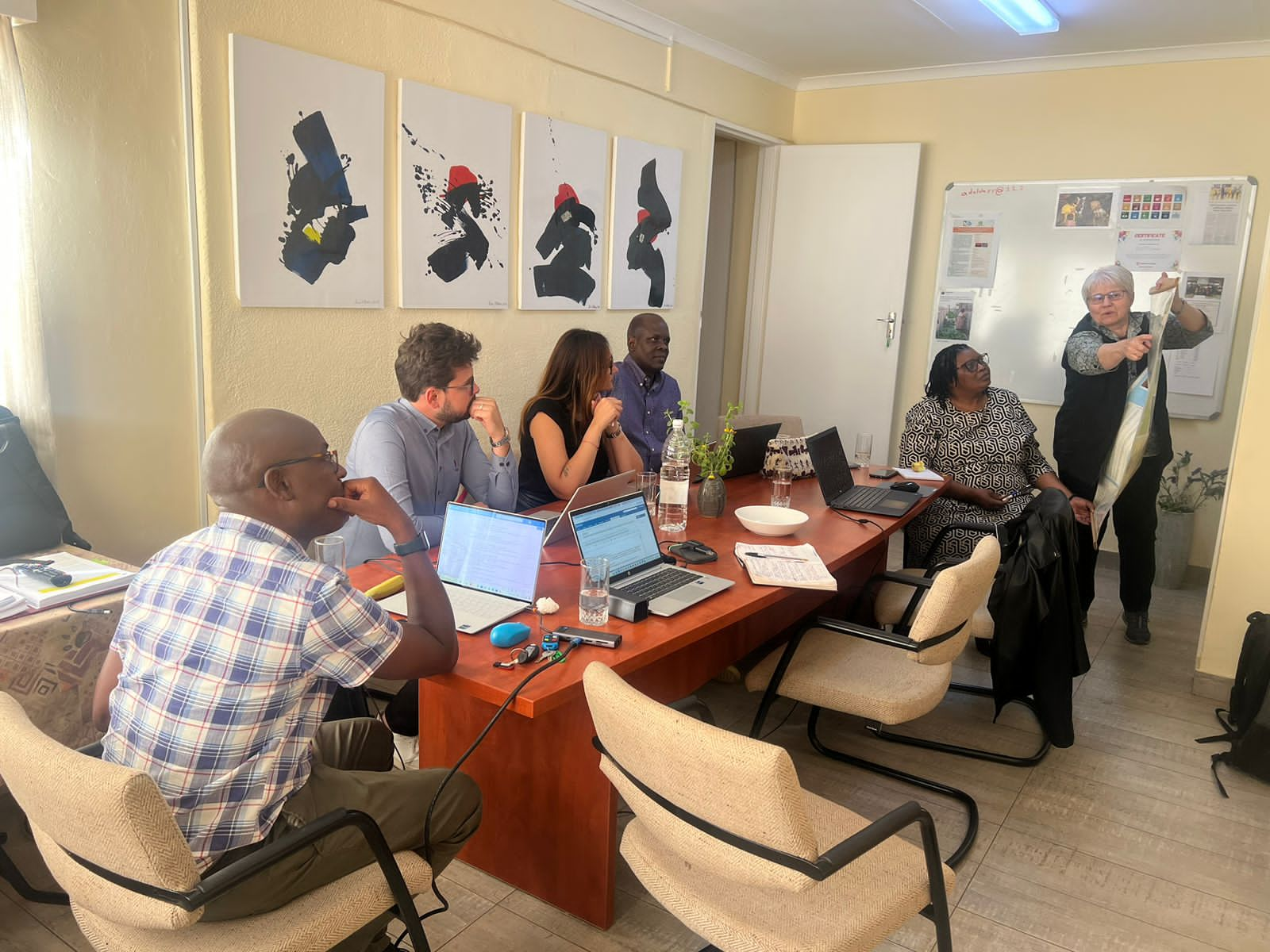
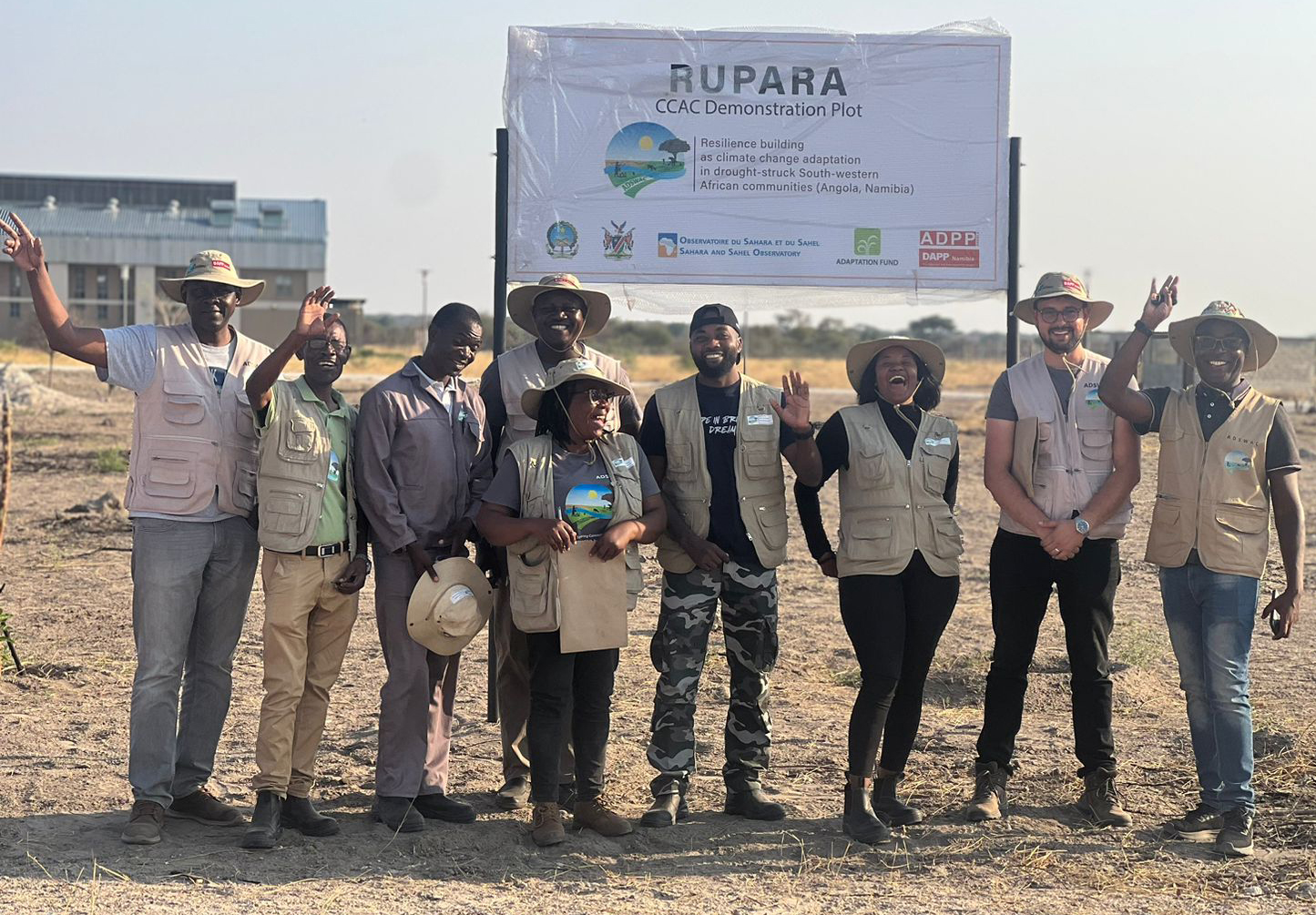
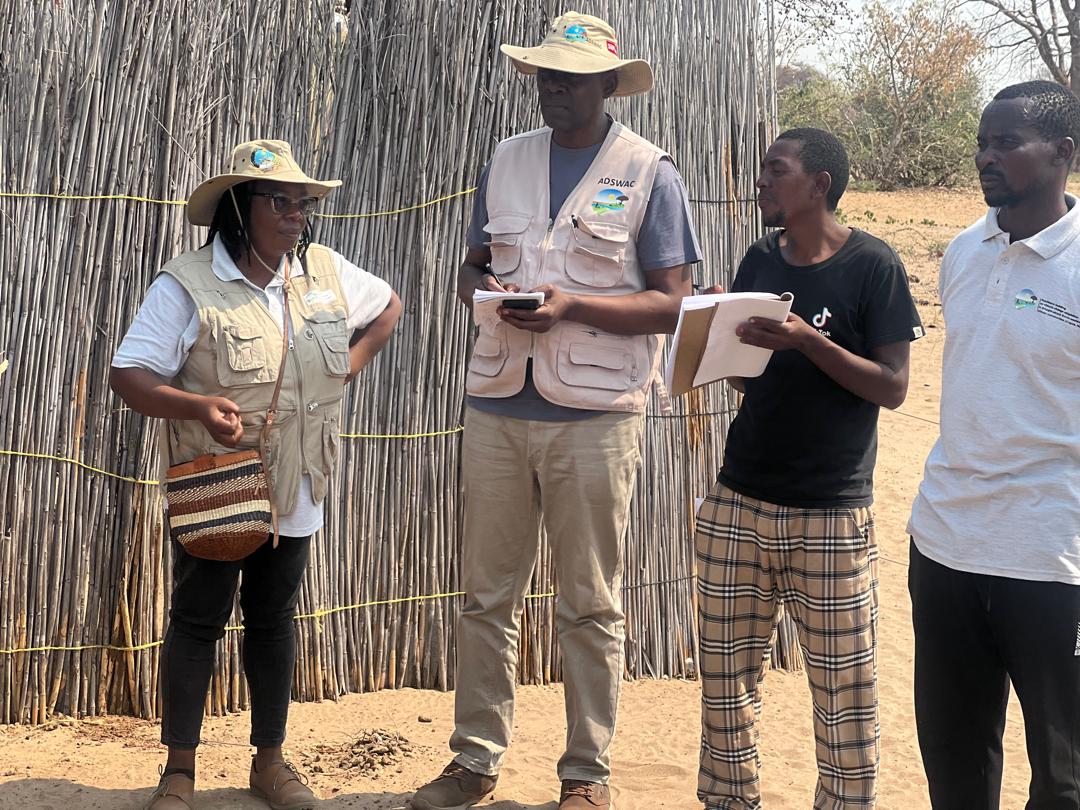
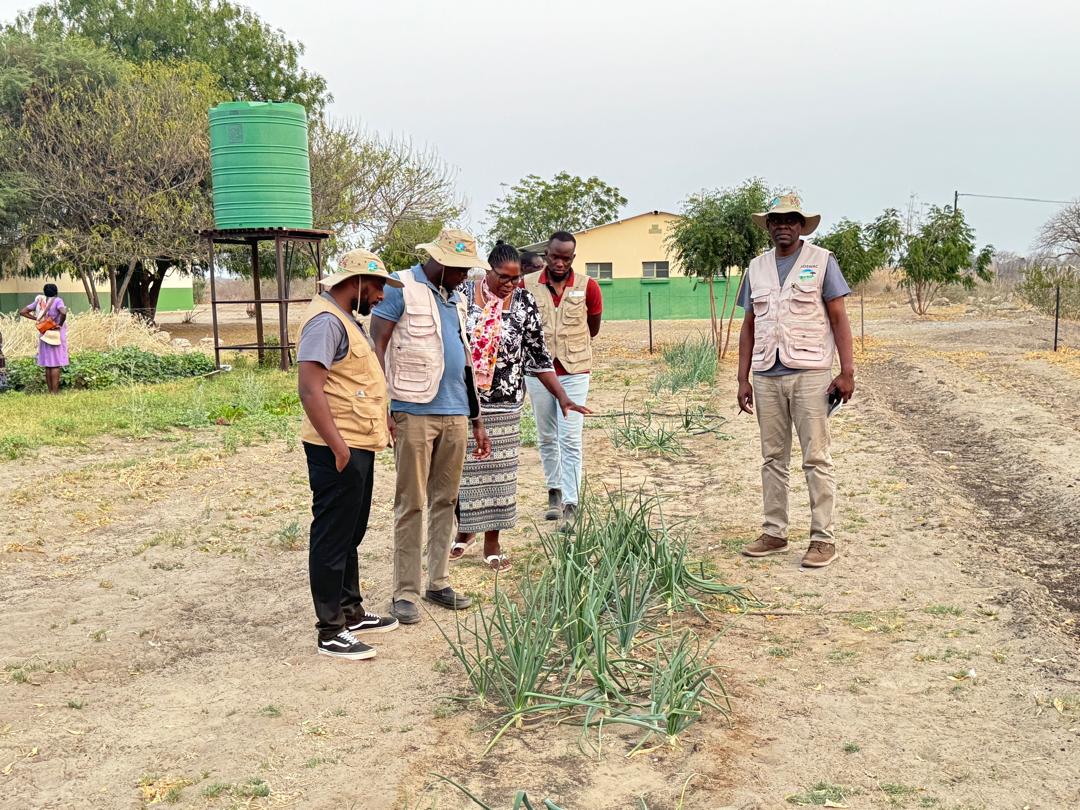
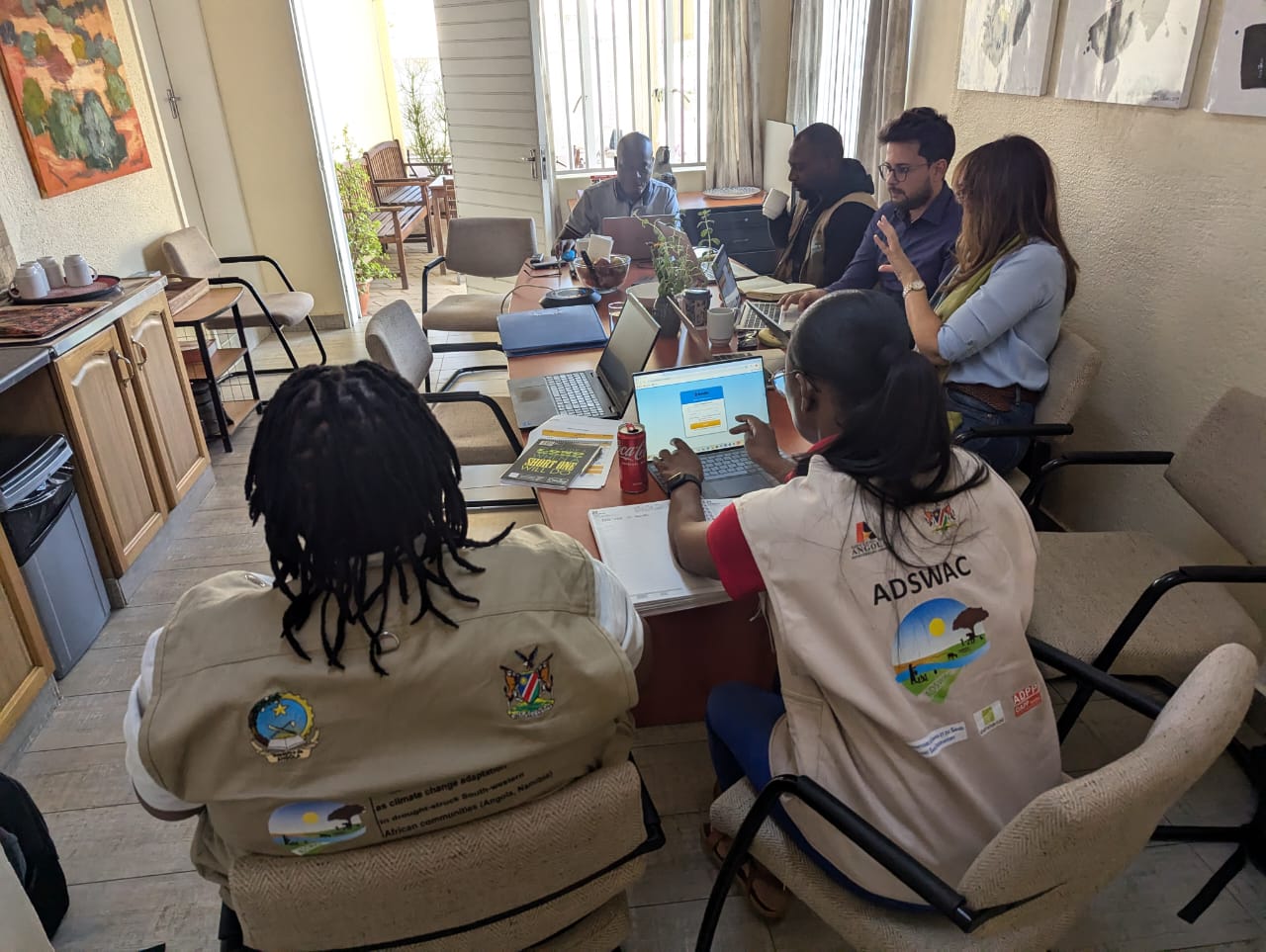
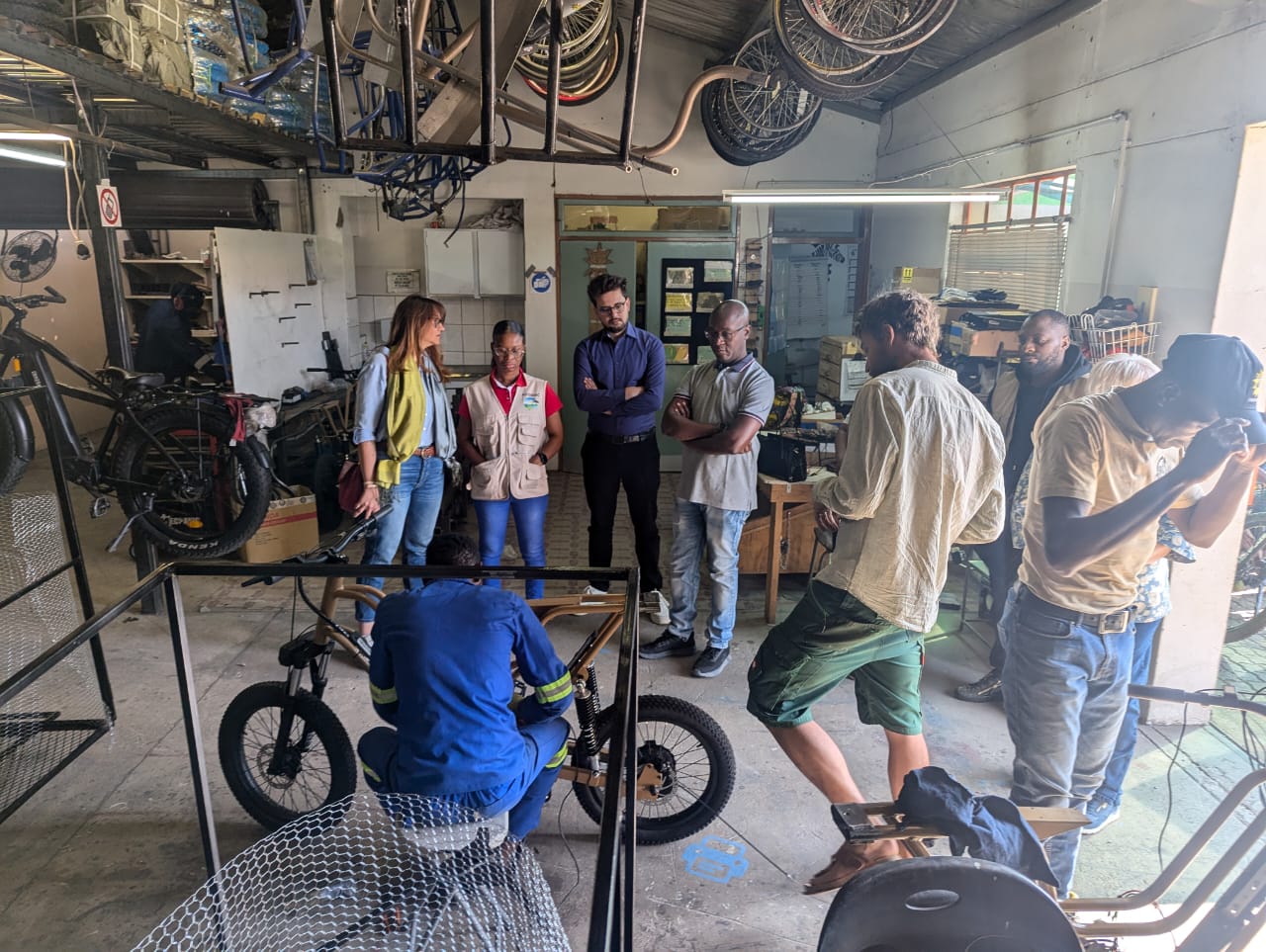
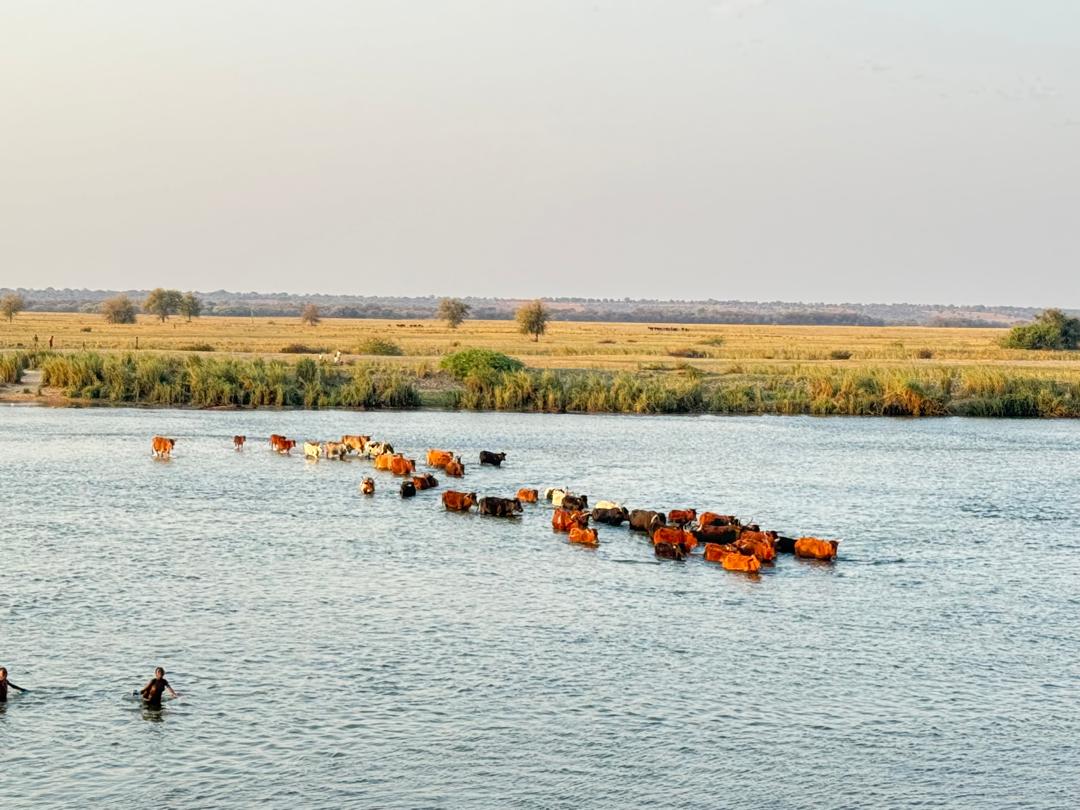
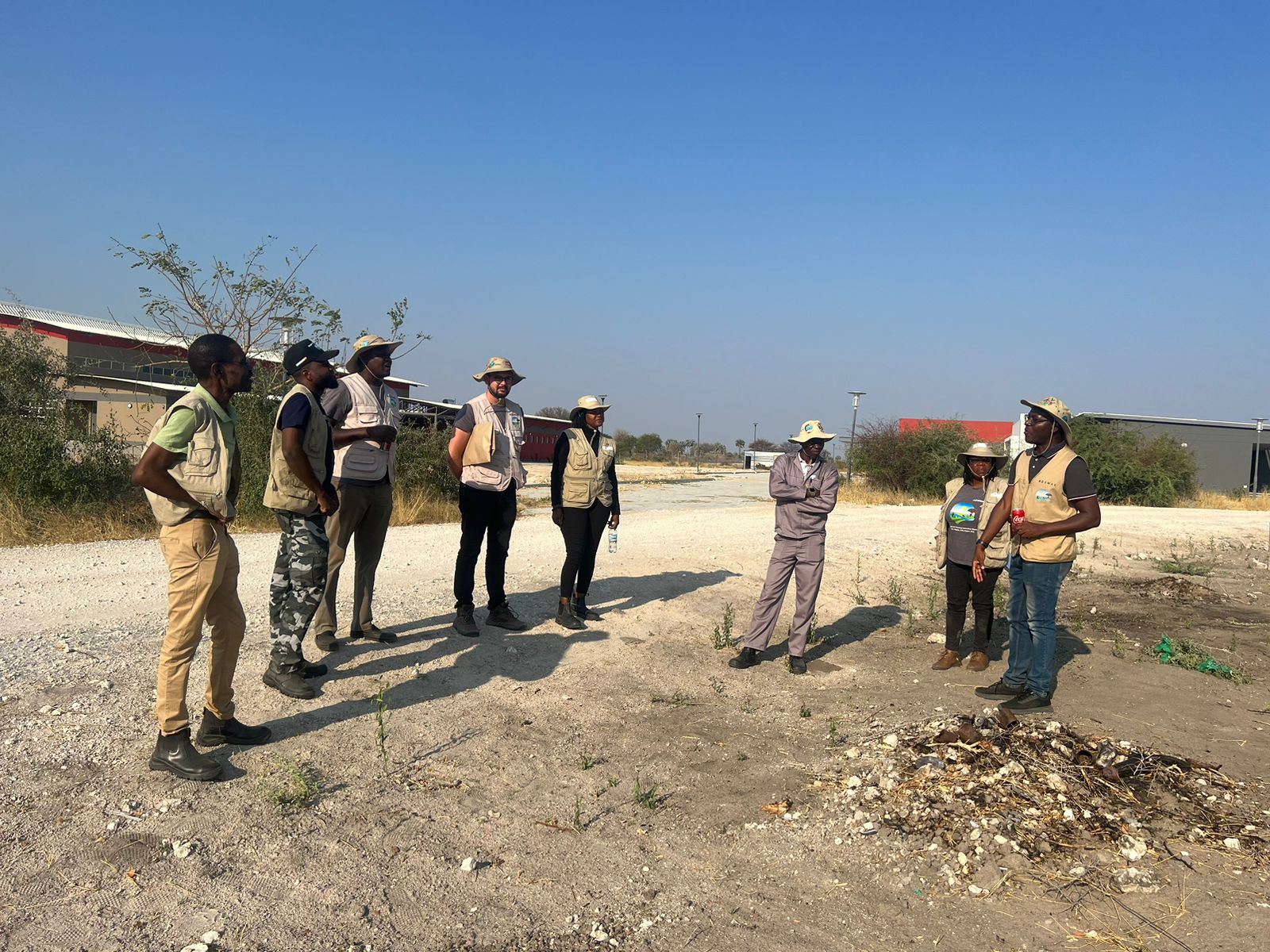
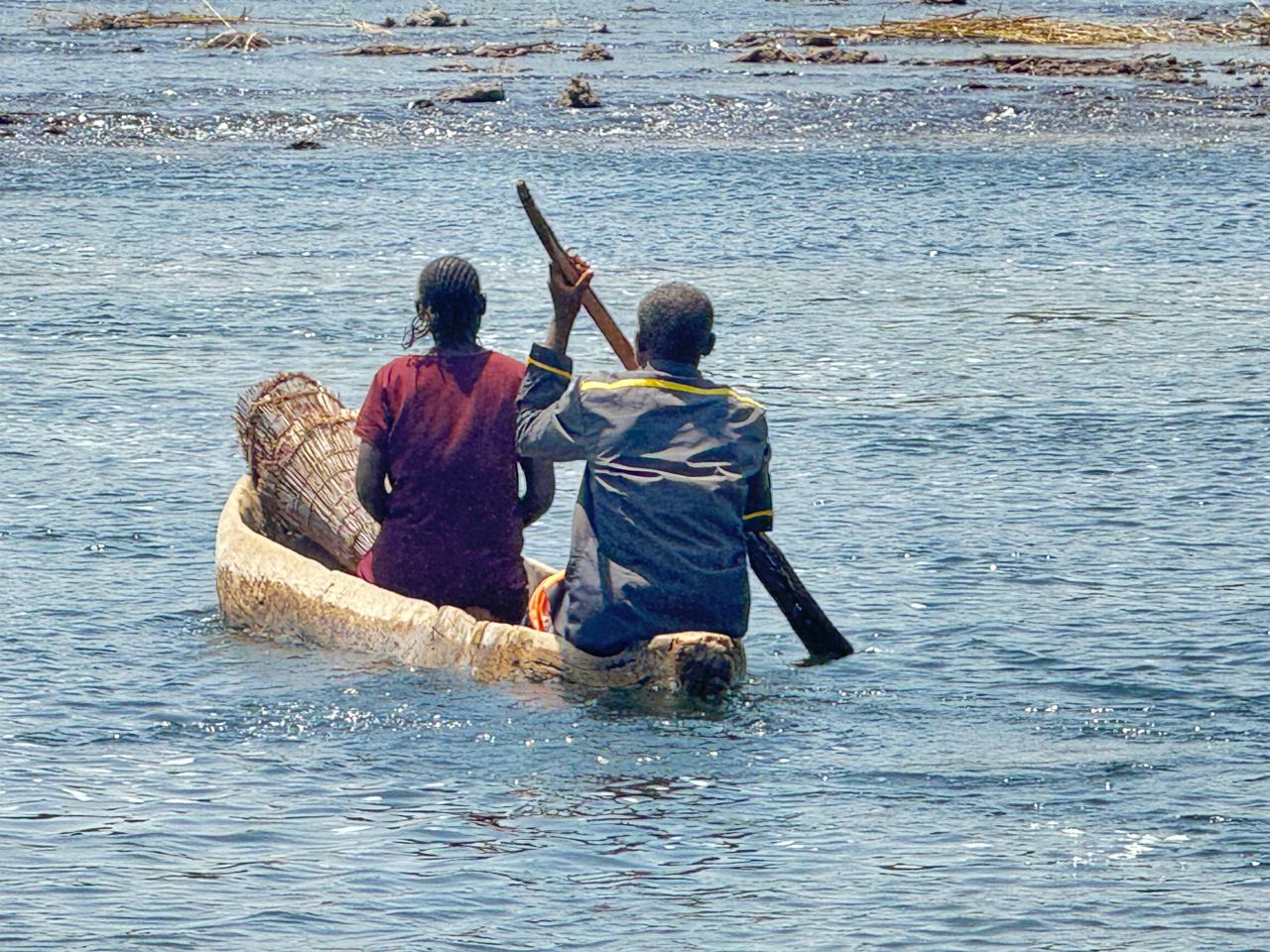
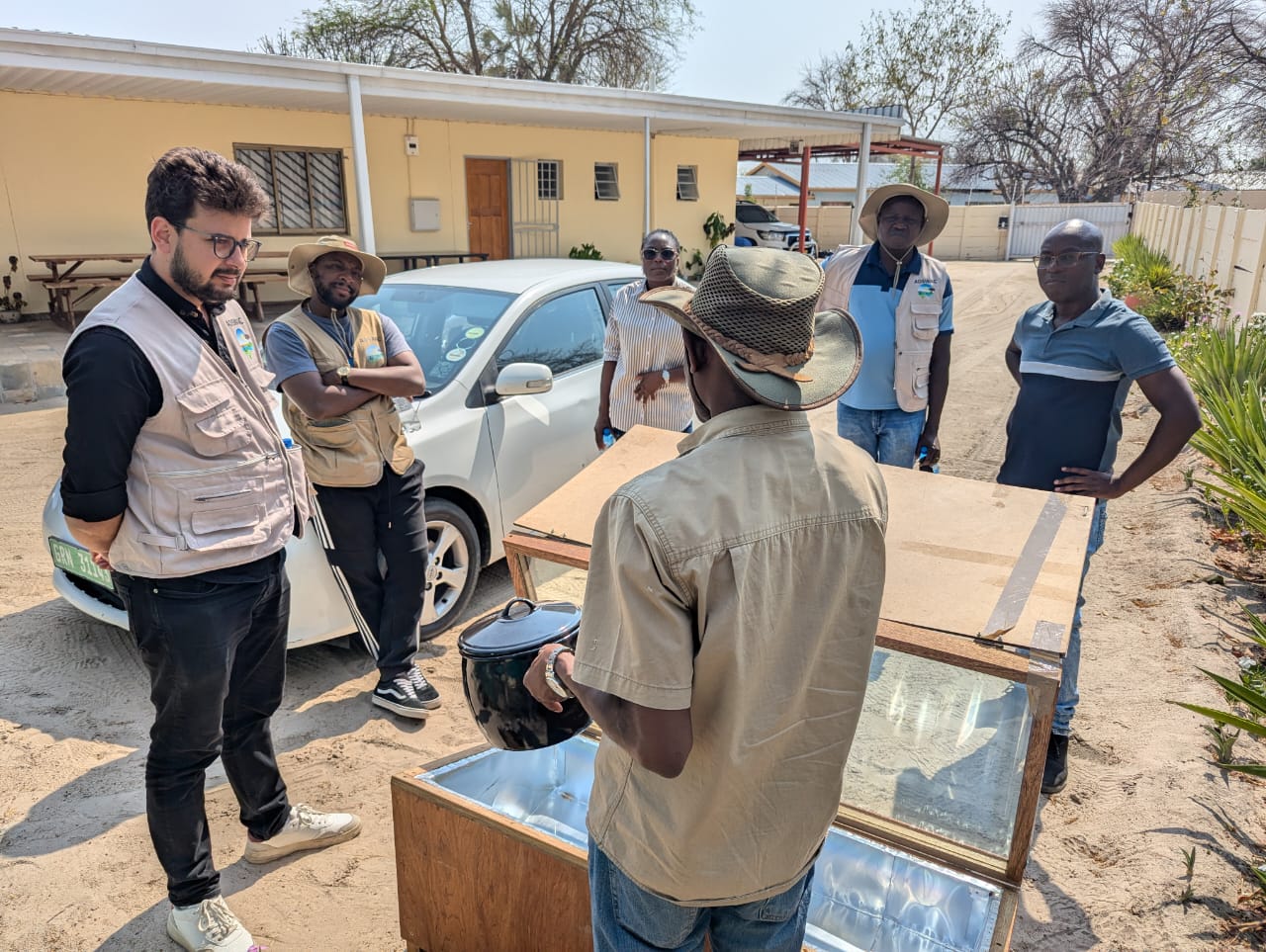
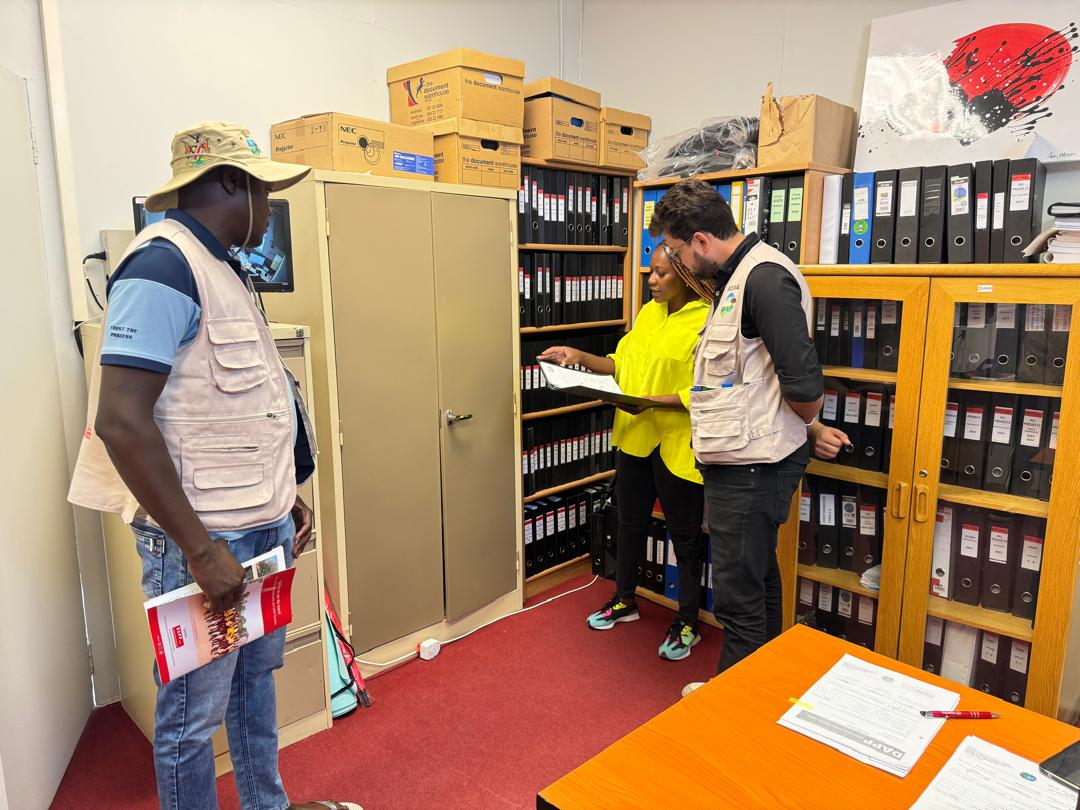
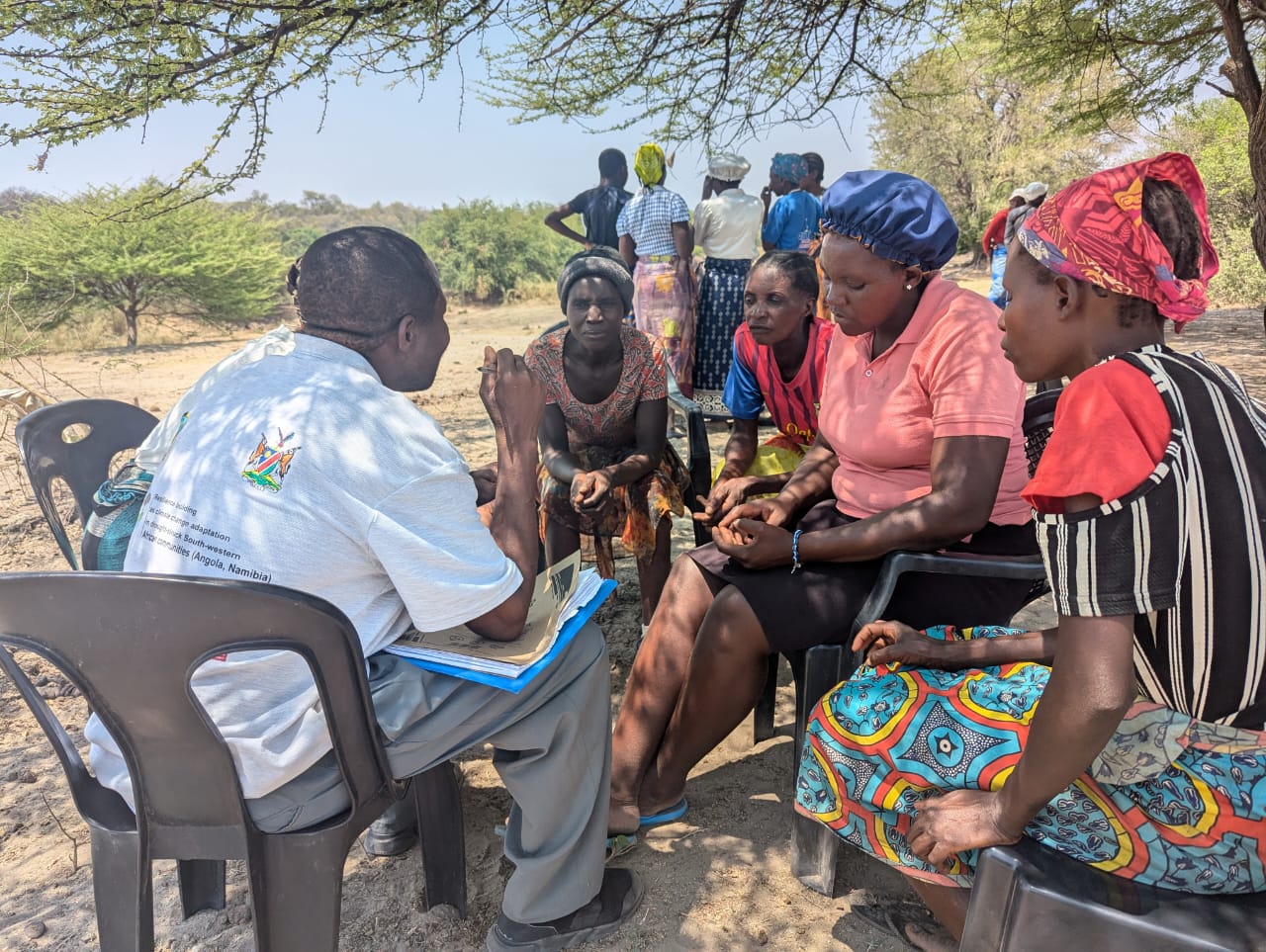
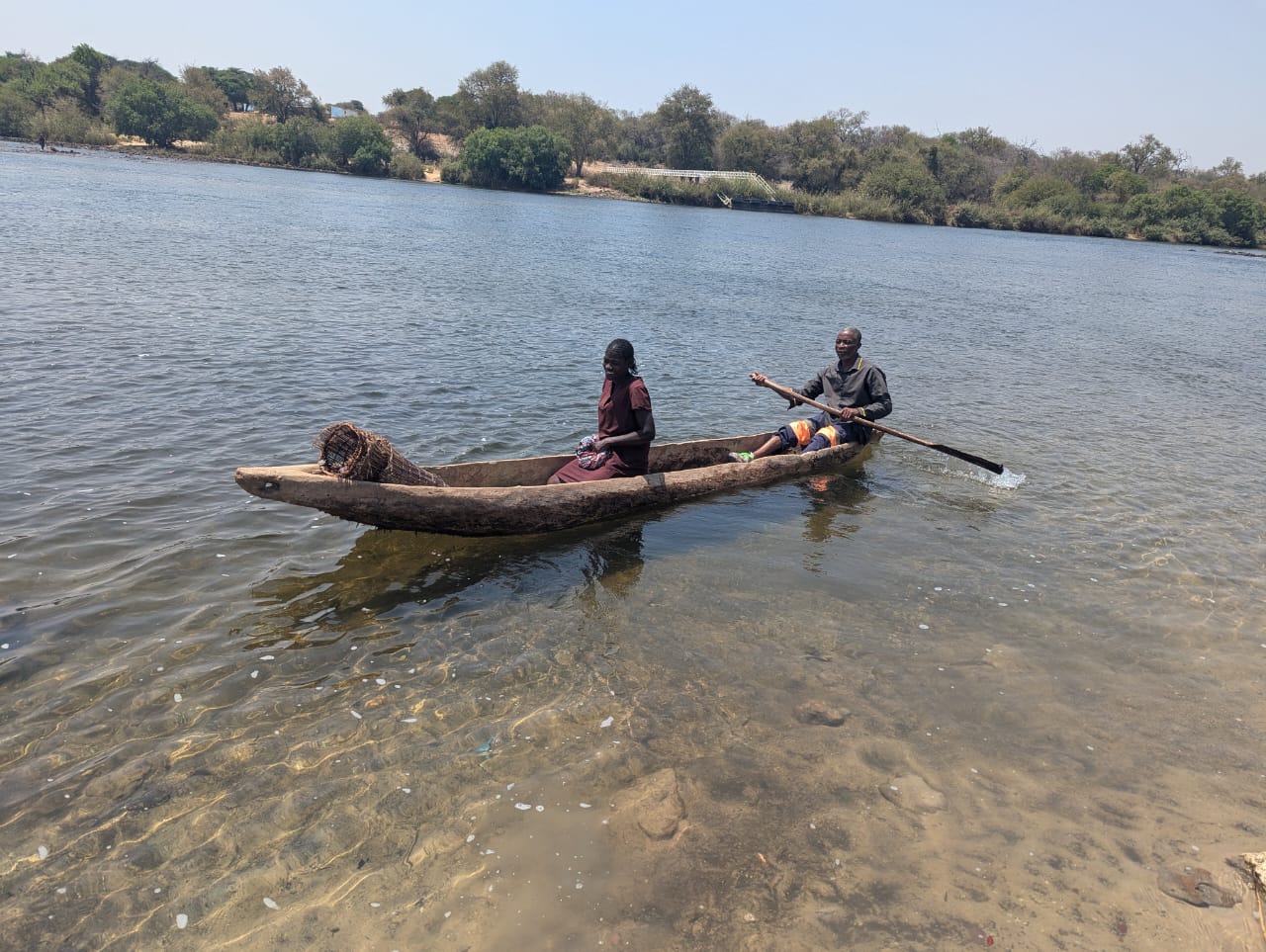
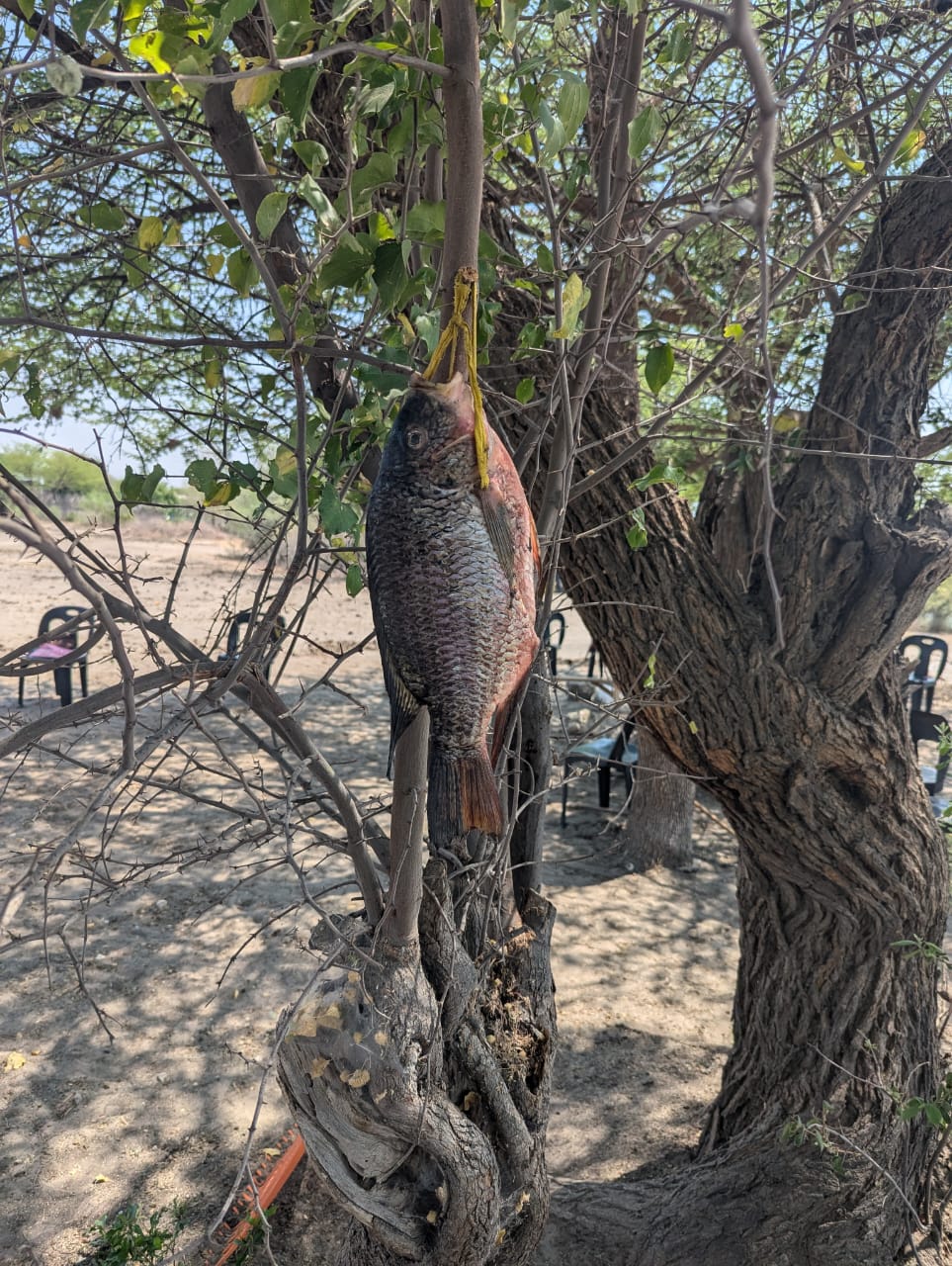
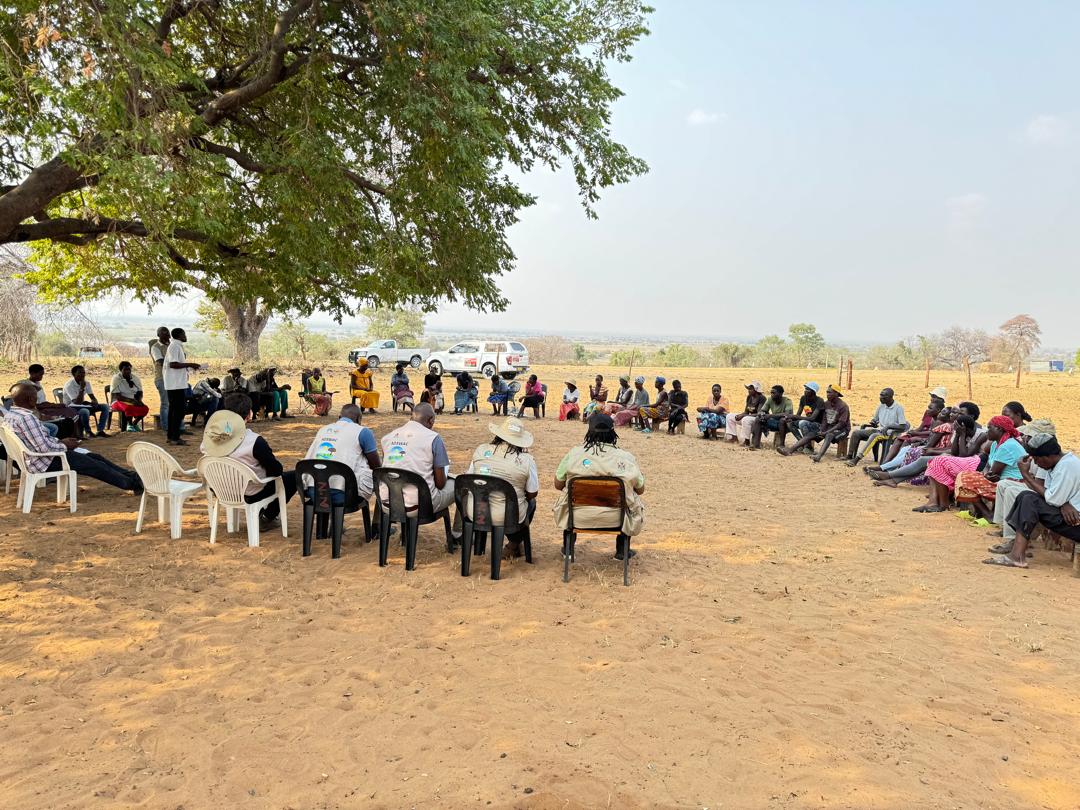
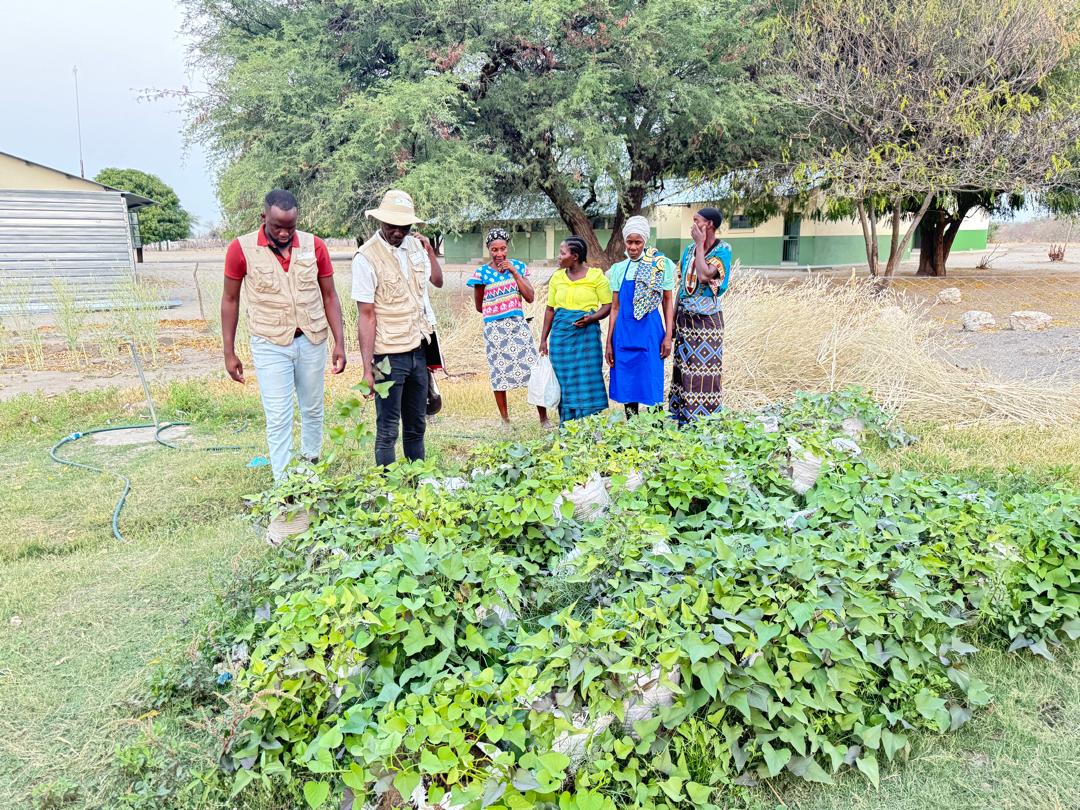
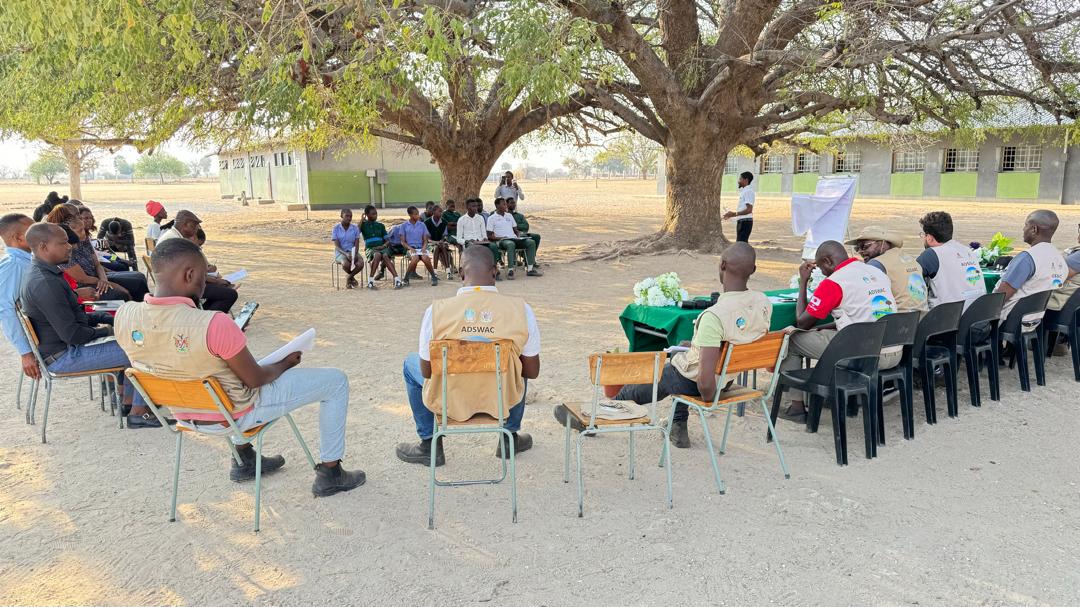
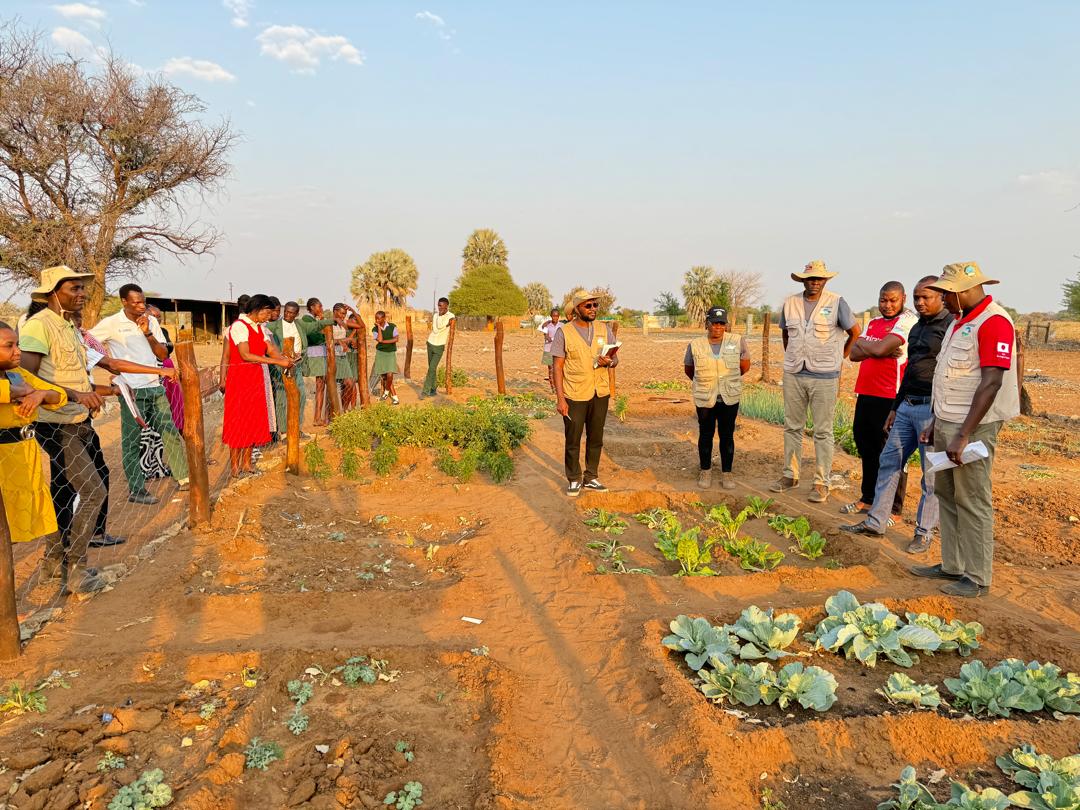
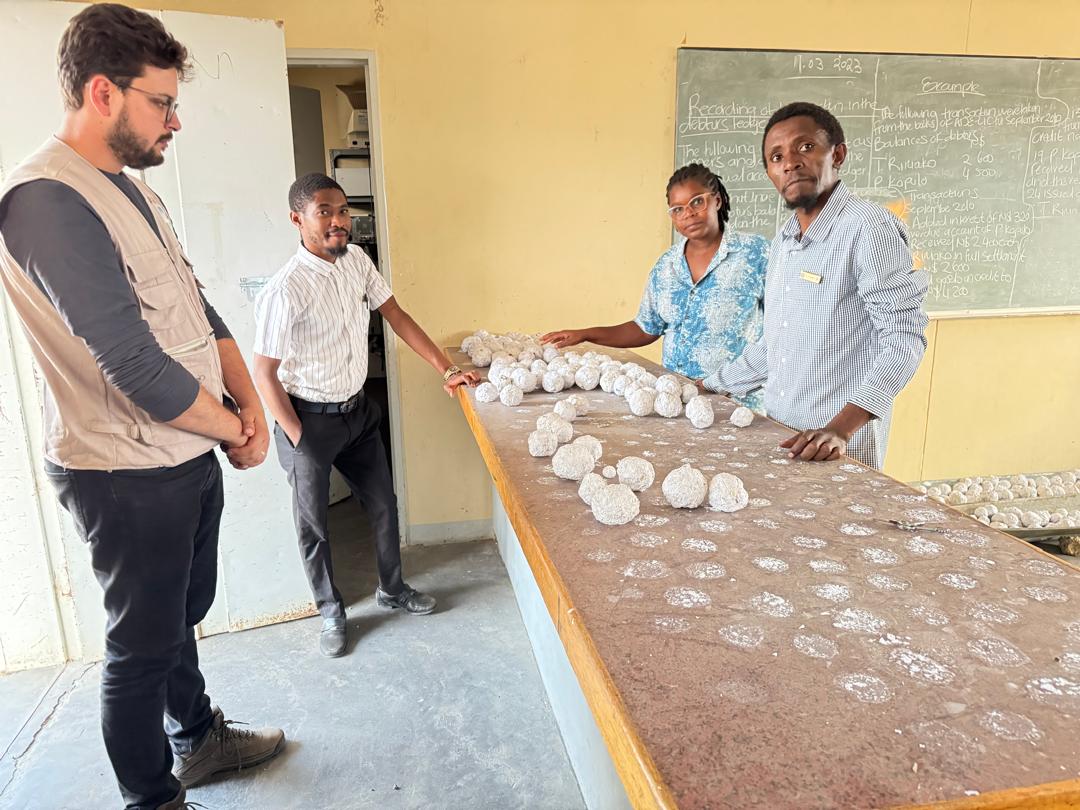
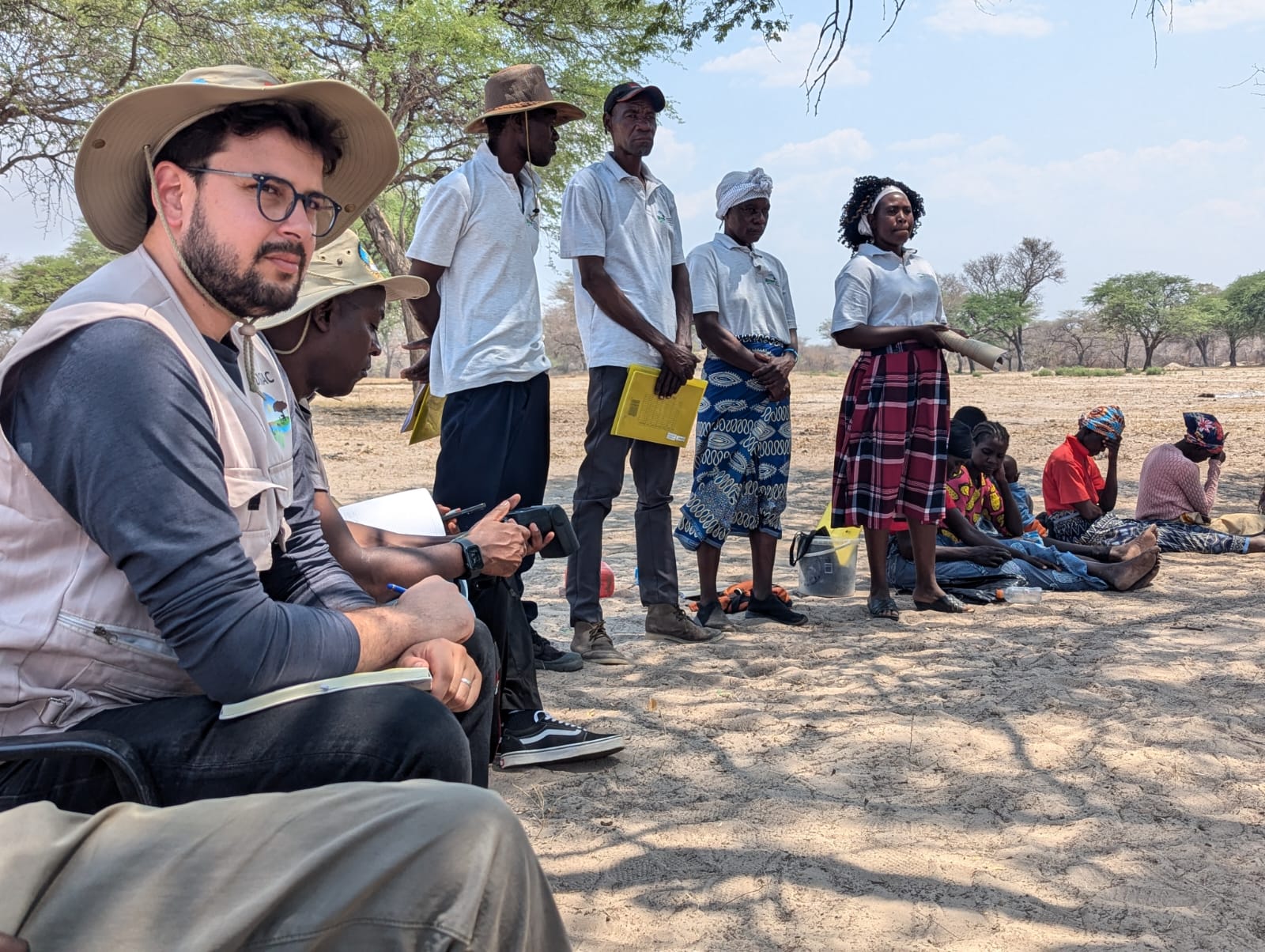
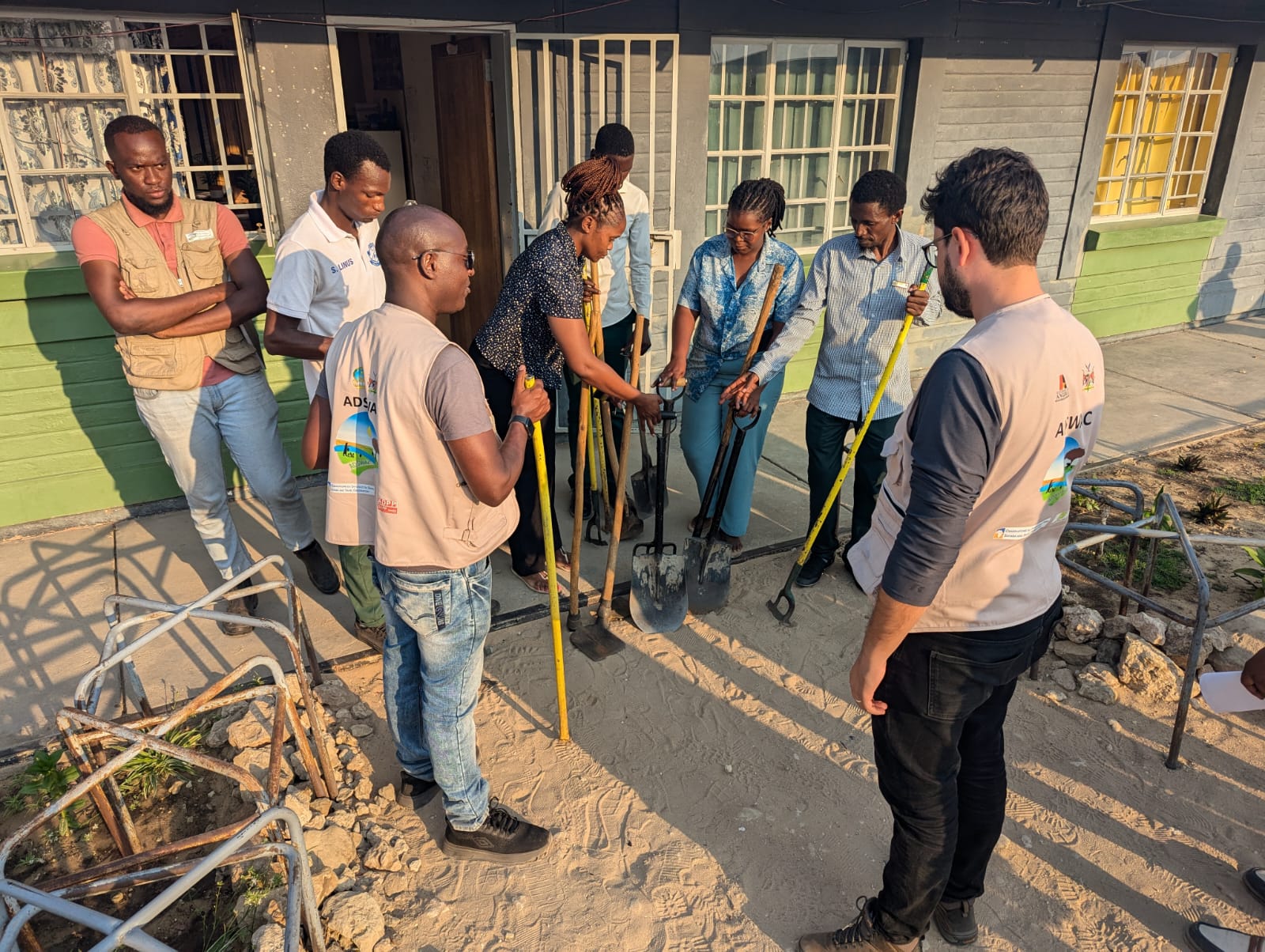
From September 20th to 27th, in Namibia, the Sahara and Sahel Observatory (OSS) conducted the second supervision mission of the ADSWAC Project, aimed at building resilience and adaptive capacities among smallholder farmers and pastoralists affected by climate change, particularly in the context of drought and rainfall variability. This initiative targets approximately 10,000 households and focuses on enhancing the agriculture and water sectors to promote sustainable livelihoods and climate adaptation.
The mission commenced in Windhoek, where Chief of Mission Mrs. Khaoula Jaoui, accompanied by Mr. Haithem Rejeb and Mr. Robert Onyango, met with the Executing Entity/Project Management Unit (EE/PMU). Discussions made it possible to review the project objectives, timelines, key initiatives and deliverables since the project's inception. Valuable insights were shared regarding both successes and challenges faced, alongside actionable recommendations for the PMU to consider as they plan the next phase of implementation.
Following the initial sessions in Windhoek, the OSS delegation, alongside representatives from DAPP Namibia, the Project Regional Coordinator, and Mr. Sion Shifa—Chairperson of both the National and Regional Steering Committees of the ADSWAC Project—conducted field visits to sit with local communities, including established Producer Organizations (POs), Water Users Associations (WUAs), Climate Change Adaptation Centers (CCACs), and schools within the Green School Program.
The mission underscored the robust community commitment demonstrated by various Producer Organizations, including Shikenge PO, Kehenge PO, and Makambu PO, as well as Water Users Associations such as Shighuru WUA. These Organizations have successfully secured land for agricultural activities, and the next steps will focus on initiating these practices. The visited communities expressed a strong desire for further engagement in the project's livelihood diversification activities and sought additional support from the project.
Moreover, the mission highlighted the critical role of the Climate Change Adaptation Centers (CCACs) in Kavango East and Kavango West. The Rupara CCAC, in particular, is poised to become a regional center of excellence, having received positive feedback for its facilities. The OSS team emphasized the urgency of effectively leveraging these resources to enhance community engagement and capacity building.
The visits to educational institutions, including Mbambi Senior Primary School, Neyuva Senior Secondary School, and Haisisira Senior Primary School, showcased the active involvement of students and teachers in environmental initiatives under the Green Schools Program (GSP). The schools reported various achievements, such as establishing gardens to support feeding programs. However, they collectively face challenges, including the need for tools and materials, pest management, water scarcity, and securing gardens from stray animals. Despite these obstacles, the dedication of both students and teachers to promoting environmental awareness and sustainability was praiseworthy.
Throughout the mission, there was a clear emphasis on gender inclusivity, as reflected in the leadership composition of the POs and WUAs, demonstrating a commitment to equitable participation. In conclusion, the outcomes of the supervision mission underscored the communities' eagerness to engage with the ADSWAC Project, their commitment to implementing sustainable practices, and the necessity for targeted support to address challenges in resource management, capacity building, and infrastructure development. The OSS delegation is dedicated to leveraging these insights to enhance the project's impact, ensuring it effectively meets the communities' needs and fosters long-term resilience against the impacts of climate change.